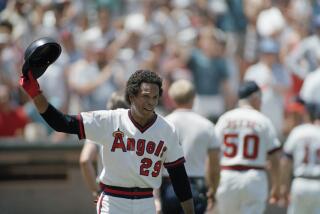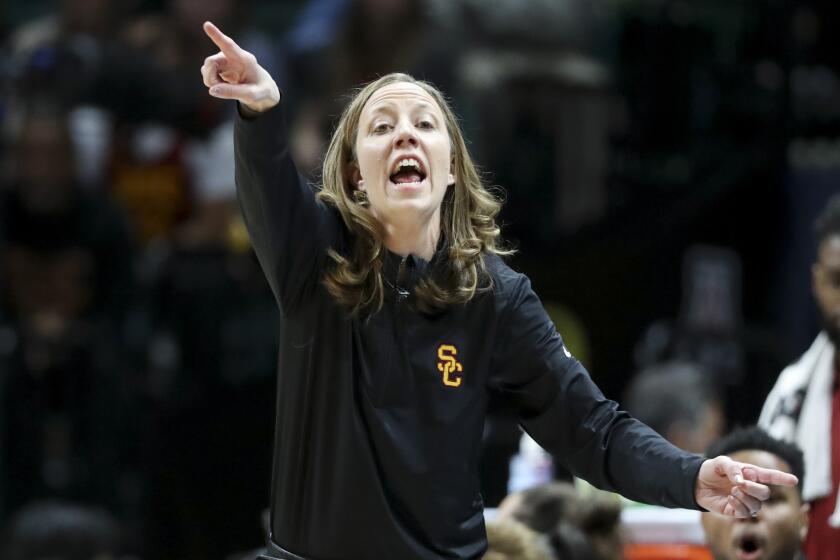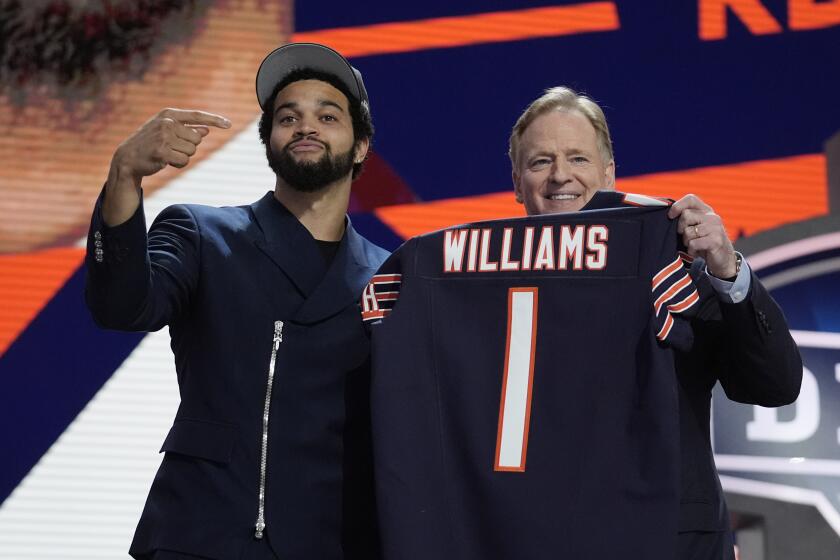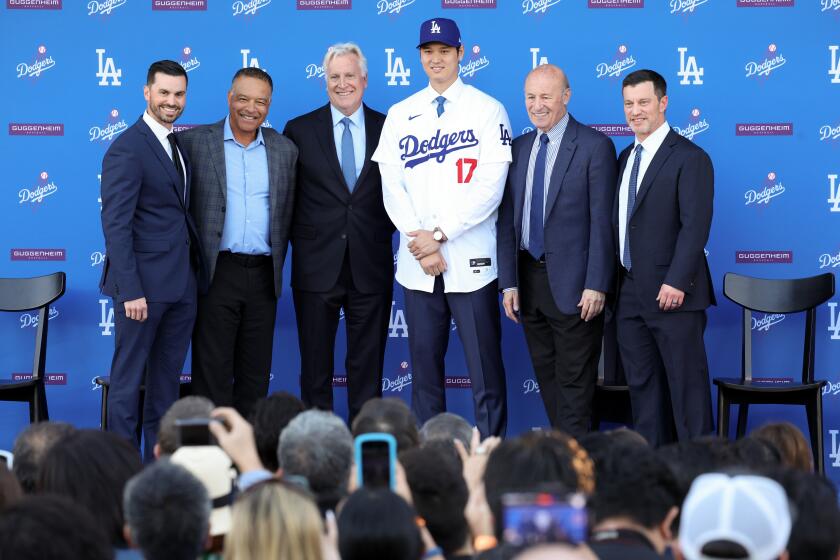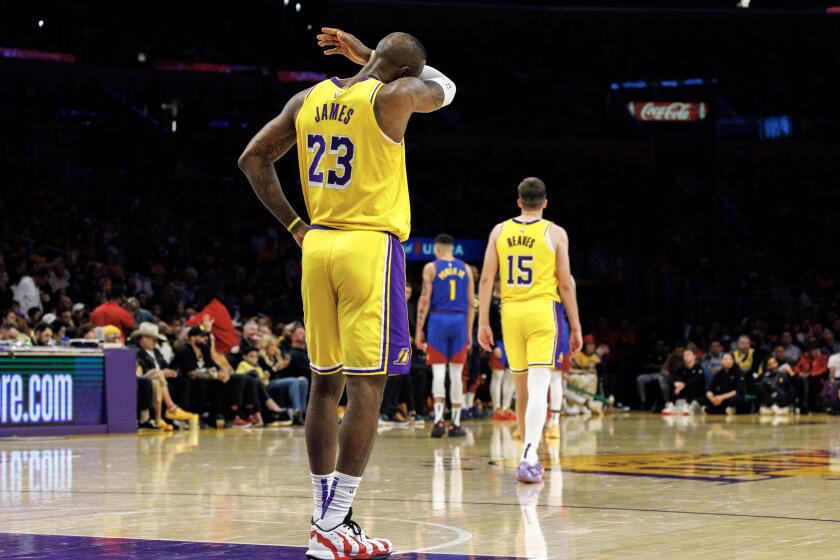Battle between Angels, StubHub picks up steam
Sacramento might not have a major league baseball team, but the commissioner will pay close attention to a battle there this week between the Angels and StubHub.
At issue: Who owns a ticket?
Long gone are the days when fans had to buy tickets at the box office or from the neighborhood scalper. As teams shift from paper tickets to bar codes — for downloading and printing at home or scanning from a smartphone — technology enables any fan to be a ticket broker.
The Angels and StubHub are the latest combatants in a national debate over whether teams and concert venues can control what fans do with a ticket once they buy it. At stake: the $4 billion fans spend each year to buy sport and concert tickets from parties other than the original seller, according to the Sports Business Journal.
StubHub, an online ticket marketplace, sold four tickets per day when it launched in 2000, spokesman Glenn Lehrman said. Today, he said, the company sells one ticket every second.
The Angels this season declined to renew a partnership with StubHub and allied instead with rival Ticketmaster. The Angels charge season-seat holders 5% of the resale purchase price, with the fee split between the team and Ticketmaster, said Robert Alvarado, the Angels’ vice president of marketing and ticket sales.
Under last year’s program, he said, season-seat holders were charged a 15% resale fee, with the proceeds split between Major League Baseball and StubHub. On Tuesday, a California Assembly committee is scheduled to hear a bill sponsored by a StubHub advocacy group and designed, according to a news release, to “prohibit [the] Angels’ restrictive ticketing practices.”
However, the bill would apply to all tickets sold for performances in California, sporting events or otherwise. The bill would forbid the seller from putting any restrictions on the resale of a ticket — you buy it, you own it.
Dr. Richard Pan (D-Sacramento) said he introduced the legislation at the request of the StubHub advocacy group Fan Freedom in response to the rise in restrictions placed by teams on the transfer of tickets.
“To me, this changes the fundamental relationship between the community and the sports team,” Pan said.
The Angels can void any ticket “should any person sell or offer this ticket for resale,” and resale in any forum other than on the team-authorized Ticketmaster site “is prohibited,” according to the legal conditions attached to each ticket.
“The language has always been consistent, even when we were with StubHub,” Alvarado said.
Alvarado said the Angels do not seek out fans who use StubHub or other non-Ticketmaster sites.
However, he said, the language protects the team should fraudulent tickets be purchased on StubHub and fans try to use them — as happened, he said, during the Angels’ first homestand. He said the Angels have seen copies of electronic tickets posted on multiple sites, and even on the same site.
Alvarado says the Angels guarantee the authenticity of all sales on the team’s Ticketmaster site. StubHub says it guarantees all tickets bought on its site.
Chris Grimm, communications director for the StubHub advocacy group, said he is skeptical of teams claiming they are looking out for the fans’ best interests.
“These are the people who bring us $12 beers,” Grimm said.
Tim Mead, the Angels’ senior vice president of communications, said the Angels and the other four MLB teams in California plan to have a representative in attendance at Tuesday’s hearing. Mead called the bill “an attack on everybody’s ticketing — every sport, every performing arts, everything.”
Without access to tickets — to events the company pays nothing to stage — StubHub has no business. On the other hand, according to Lehrman, the Stub Hub spokesman, “If you buy a Honda, should Honda tell you where you should be able to resell your car?”
With the rise in dynamic ticketing, in which individual game prices are constantly adjusted based on supply and demand, teams can match — or undercut — ticket prices on the resale market.
The battle revolves primarily around season tickets: the best seats in the house, sold for a set price, before the market price of each ticket might rise or fall — maybe the team flops, maybe the Dodgers acquire Manny Ramirez in midseason and he electrifies the city.
“When the ticket price is printed, that is just the initial public offering price,” said David Carter, executive director of the USC Sports Business Institute. “Once you sell it, who controls it going forward?
“Professional sports doesn’t want to give that up. They’ve left a lot of money on the table.”
twitter.com/BillShaikin
More to Read
Get our high school sports newsletter
Prep Rally is devoted to the SoCal high school sports experience, bringing you scores, stories and a behind-the-scenes look at what makes prep sports so popular.
You may occasionally receive promotional content from the Los Angeles Times.
